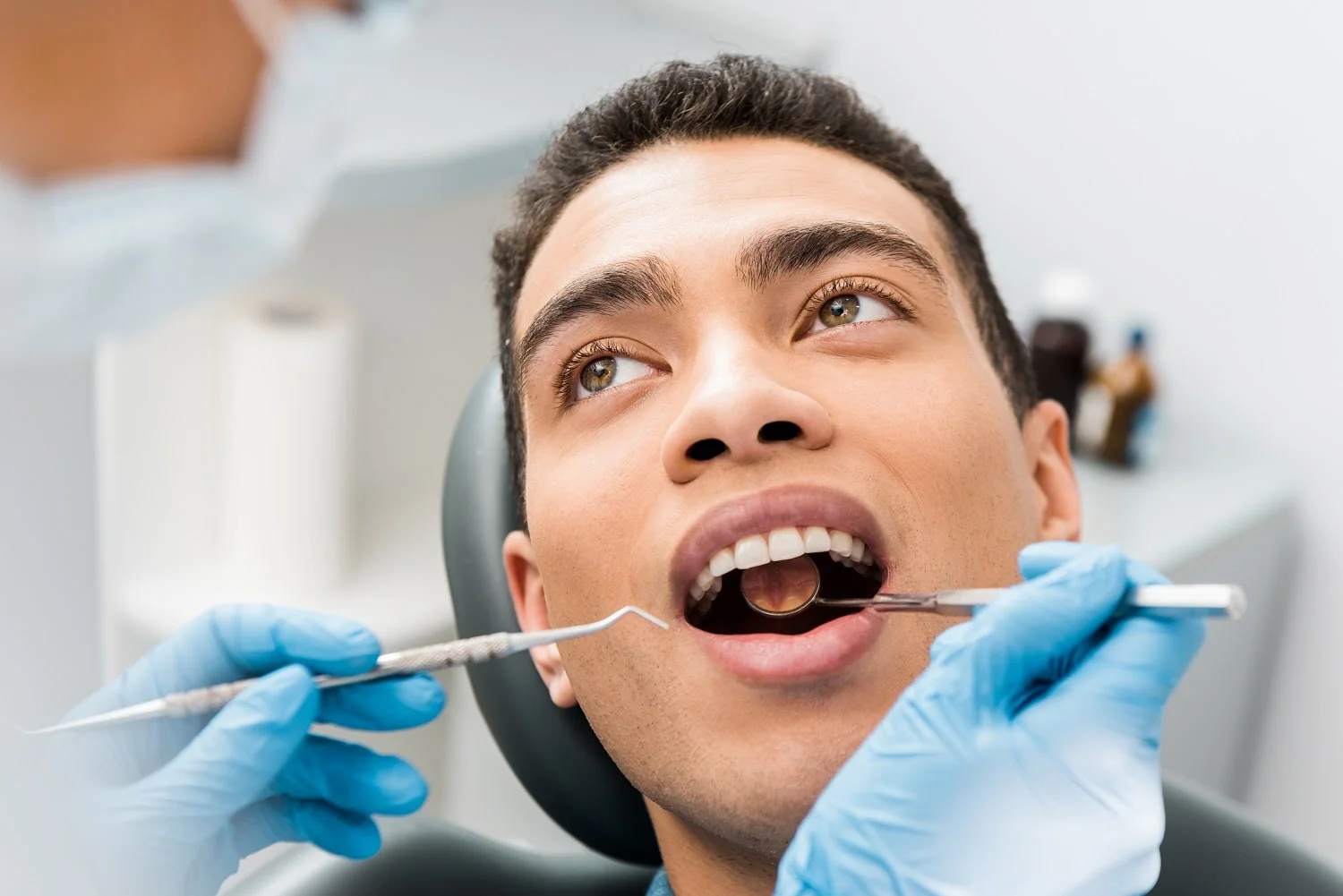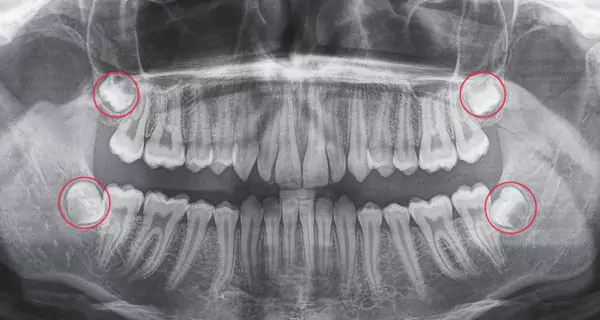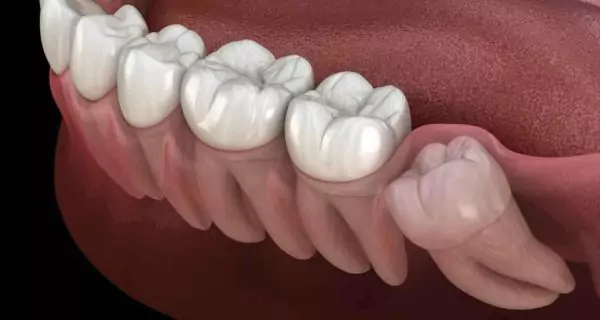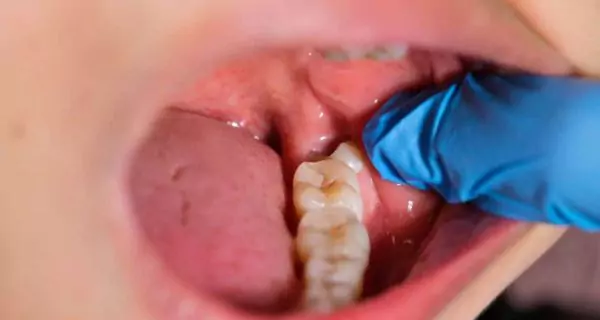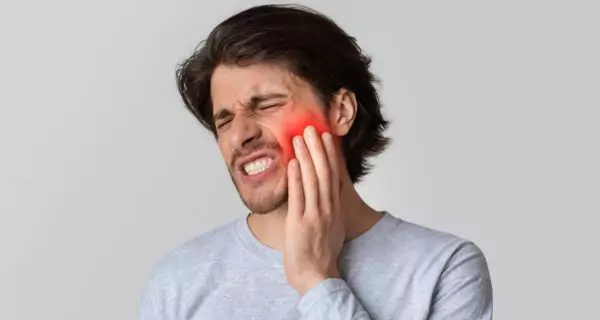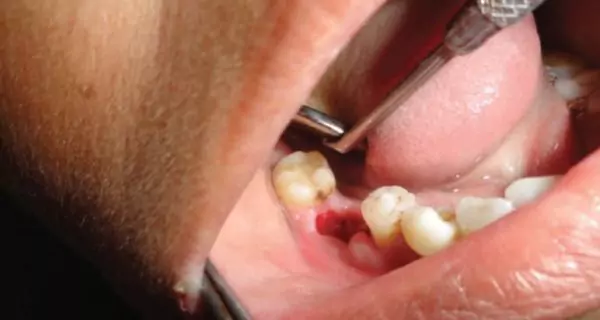Last Updated on: 27th December 2025, 07:39 am
Not everyone needs to have their wisdom teeth removed. But if they cause pain, infection, damage to other teeth, or bite problems, extraction is usually recommended. Wisdom tooth removal can also prevent more serious oral health issues later.
We’ve all heard stories about wisdom tooth removal, some scary, others more reassuring. It’s a common procedure, but many still ask: do wisdom teeth have to be removed?
Usually, wisdom teeth are removed when they cause pain, infections, or problems with nearby teeth. And to be honest, many people will need to undergo this procedure at some point.
But don’t worry. If your dentist has recommended extraction, this guide will help you understand why, when, and what to expect before and after the procedure.
What are wisdom teeth?
Wisdom teeth, also called third molars, are the last teeth to develop and are located at the very back of the dental arches.
Often, these teeth don’t have enough space to emerge properly, which can lead to many problems, including pain, infections, or damage to nearby teeth.
This happens because, from an evolutionary standpoint, human jaws have become smaller due to modern diets with softer, more processed foods. This has reduced the space in our mouths, making it harder for wisdom teeth to erupt properly, or at all.
At what age do wisdom teeth develop?
Wisdom teeth begin forming between the ages of 8 and 12, but their full development varies from person to person. They typically erupt (become visible in the mouth) between the ages of 17 and 25.
Upper third molars tend to develop a year or two earlier than the lower ones.
Do all wisdom teeth need to be removed?
No, not all wisdom teeth have to be removed. If they erupt fully, are healthy, and don’t affect other teeth or your bite, they can stay. But often, there isn’t enough space in the mouth, and these teeth can cause problems, even if they don’t hurt right away.
Why do wisdom teeth sometimes need removal?
Wisdom teeth often need to be removed when they don’t grow in properly or cause oral health issues. Here are the most common reasons:
Not enough space
Our jaws have become smaller over time. This means there’s often no room for wisdom teeth to grow in correctly. They can get stuck (impacted) or grow sideways.
Impacted or crooked teeth
When a wisdom tooth is trapped under the gums or bone, or grows at an angle, it can press against nearby teeth. This causes pain and may damage other teeth.
Risk of infection and decay
Partially erupted wisdom teeth are hard to clean. Food and bacteria can collect there, leading to gum infections (pericoronitis), tooth decay, and pain or swelling.
Cysts or bone damage
Sometimes, fluid-filled sacs (cysts) can form around impacted teeth. These can damage the jawbone or the roots of nearby teeth.
Bite and alignment issues
Wisdom teeth may push other teeth out of place or interfere with braces or other dental work. They can change your bite and affect your smile.
Other serious problems
- Deep cavities or exposed pulp in the wisdom tooth
- Fractured or broken teeth
- Chronic or severe pain in the back of the mouth
- Loss of bone around nearby teeth
If any of these issues occur, your dentist may recommend removing one or more wisdom teeth to avoid further complications.
What happens if I don’t remove my wisdom teeth?
Not all wisdom teeth need to be taken out. But if your dentist says they might cause problems and you decide not to remove them, these are the risks:
- Repeated infections: trapped food and bacteria can lead to gum infections.
- Cavities: it’s harder to clean around crowded or crooked wisdom teeth.
- Damage to nearby teeth: impacted wisdom teeth may push or harm other teeth.
- Cysts or tumors: though rare, they can damage bones and roots.
- Bite problems: pressure from impacted teeth may shift your bite.
- Chronic pain: You might feel pain in your jaw, ear, or head.
If you’re wondering “do wisdom teeth have to be removed?”, the answer depends on your mouth. Some people never need them removed. But for others, removing them early can prevent pain, damage, and costly treatments in the future.
When should I see a dentist about my wisdom teeth?
You should see a dentist if your wisdom teeth:
- Cause pain in the back of your mouth
- Are red, swollen, or infected
- Make it hard to chew or open your mouth
- Causes bad breath or a bad taste
- Get cavities or trap food
A general dentist can check your wisdom teeth first. If the case is more complex, they may refer you to an oral surgeon.
What exams are needed before wisdom tooth removal?
The dentist will do a clinical exam and take a panoramic X-ray to check:
- The position and shape of the wisdom teeth
- If the teeth are close to nerves
- If the teeth are impacted or trapped under the gums
- If there are infections, cysts, or bone damage
This X-ray helps plan the safest way to remove the teeth and avoid problems.
If your wisdom teeth are healthy and not causing any issues, your dentist may decide to leave them in place and simply monitor them over time.
What are the risks of wisdom tooth extraction?
Wisdom tooth extraction is a common and generally safe procedure. However, like any surgery, it can have side effects. Most of them are mild and go away as you heal, especially if you follow your dentist’s aftercare instructions.
Below are the most common side effects and risks, and how to handle or prevent them.
Why does swelling happen after wisdom tooth removal?
Swelling is your body’s normal response to surgery. It usually peaks around day 2 or 3 and improves within a week.
Tips to reduce swelling:
- Apply cold packs to your cheeks during the first 24 hours (20 minutes on, 20 minutes off)
- Sleep with your head slightly elevated
- Avoid intense physical activity for a few days
Is pain normal after wisdom tooth surgery?
Yes, mild to moderate pain is common in the first 2 to 3 days. However, if the pain gets worse after day 3 or comes back with bad breath or a foul taste, it could be a sign of infection.
To manage pain:
- Take pain medication exactly as prescribed
- Avoid hot, spicy, crunchy, or hard foods
- Don’t brush directly over the extraction site for the first few days
Why is it hard to open my mouth after extraction?
This is called trismus, or limited mouth opening, and it happens because of temporary muscle stiffness or inflammation. It usually improves in a few days.
Helpful tips:
- Apply warm compresses starting on day 2
- Try gentle jaw-opening exercises if your dentist approves
- Take anti-inflammatory medication if needed
What is numbness or tingling after surgery?
Some patients experience temporary numbness or tingling in the lips, tongue, or chin (paresthesia). This is rare and usually happens if a nerve near the tooth was touched during surgery.
In most cases, sensation returns within a few weeks or months. Permanent numbness is extremely rare.
What is dry socket and how can I prevent it?
Dry socket happens when the blood clot that protects the bone and nerves becomes dislodged, leaving the socket exposed. It causes intense pain and may come with a bad smell or taste.
To prevent dry socket:
- Do not use straws, spit, or rinse forcefully in the first 24 hours
- Avoid smoking for at least 3 days
- Stick to soft, cool foods at first
- Follow all aftercare instructions carefully
Can you get an infection after wisdom tooth removal?
Yes, though it’s not common. Infections can happen if food particles get stuck in the socket or if oral hygiene is poor during recovery.
Watch for signs of infection:
- Fever
- Yellow or smelly discharge
- Swelling that doesn’t go down
- Pain that gets worse after 3 days
If you notice any of these signs, contact your dentist right away.
What are some rare complications?
Although very uncommon, other risks may include:
- Damage to nearby teeth, especially if they’re already weakened
- Sinus issues, especially when removing upper wisdom teeth
- Small bone fragments left in the socket
- Jaw fracture, only in extremely complicated cases
These problems are rare and usually easy to treat if detected early.
Can you get wisdom teeth removed while pregnant?
In most cases, wisdom teeth should not be removed during pregnancy, unless it’s an emergency. This is because:
- Hormonal changes can affect healing and gum sensitivity
- Dental procedures may increase the risk of miscarriage, especially in the first trimester
- Some medications and X-rays can be risky for the baby
When is it safe to remove wisdom teeth during pregnancy?
Only if it’s urgent, like when there’s an infection, swelling, or severe pain. The dentist and your obstetrician or gynecologist must decide together.
The risks change by trimester:
- First trimester: Highest risk for the baby. Avoid all non-urgent dental work.
- Second trimester: Safest time if the extraction can’t wait.
- Third trimester: Can be uncomfortable and may increase the risk of early labor.
What anesthesia can be used during pregnancy?
- Local anesthesia (like lidocaine) is usually safe in small doses.
- General anesthesia and strong painkillers should be avoided.
What can pregnant women do instead of removing wisdom teeth?
To prevent problems and avoid surgery during pregnancy:
- Brush and floss daily to keep teeth and gums healthy
- Go to regular dental checkups and cleanings
- Postpone any non-urgent procedures until after delivery
- Avoid X-rays unless absolutely needed (and always wear a protective apron)
If you’re pregnant and having wisdom tooth pain, don’t ignore it. See your dentist. They’ll help you manage it safely without risking your health or the baby’s.
Conclusion: So, do wisdom teeth have to be removed?
Not always. Wisdom teeth only need to be removed if they are causing problems, like pain, infection, crowding, or damage to nearby teeth. The most important step is early evaluation. A dentist can check their position and decide if removal is really necessary.
If a dentist recommends extraction, don’t worry. Wisdom tooth removal is safe when done by a trained professional. Most people heal quickly with the right care. So if you’re asking yourself, “Do my wisdom teeth need to come out?”, the best way to know is to book a dental checkup and get expert advice for your situation.
Frequently Asked Questions
Why do wisdom teeth get removed so often?
Can wisdom teeth grow back after removal?
How long is the recovery after wisdom tooth removal?
What can I eat after wisdom tooth extraction?
At what age should wisdom teeth be removed?
Is removing wisdom teeth painful?
No. The dentist numbs the area, so you don’t feel pain. After that, you may feel sore for a few days.
Can I leave my wisdom teeth in if they don’t hurt?
Yes, if they are healthy and not causing problems, but they still need to be checked by a dentist.
Is it OK to remove wisdom teeth later in life?
Yes, but healing might take longer. It's best to remove them earlier, but if you have problems later, a dentist can still take them out safely.
Share:
References
1. Catlett, T. (2025, April 7). Do you have to remove your wisdom teeth? Healthline. https://www.healthline.com/health/do-you-have-to-remove-wisdom-teeth
2. Cleveland Clinic. (2025, June 24). Wisdom teeth. Cleveland Clinic. https://my.clevelandclinic.org/health/body/23223-wisdom-teeth
3. Institute for Quality and Efficiency in Health Care. (2023, September 5). Wisdom teeth: Learn More – Should you have your wisdom teeth removed?. NCBI Bookshelf. https://www.ncbi.nlm.nih.gov/books/NBK279590/
4. Jung, Y., & Cho, B. (2014). Radiographic evaluation of third molar development in 6- to 24-year-olds. Imaging Science in Dentistry, 44(3), 185. https://doi.org/10.5624/isd.2014.44.3.185
-
Nayibe Cubillos M. [Author]
Pharmaceutical Chemestry |Pharmaceutical Process Management | Pharmaceutical Care | Pharmaceutical Services Audit | Pharmaceutical Services Process Consulting | Content Project Manager | SEO Knowledge | Content Writer | Leadership | Scrum Master
View all posts
A healthcare writer with a solid background in pharmaceutical chemistry and a thorough understanding of Colombian regulatory processes and comprehensive sector management, she has significant experience coordinating and leading multidisciplina...


